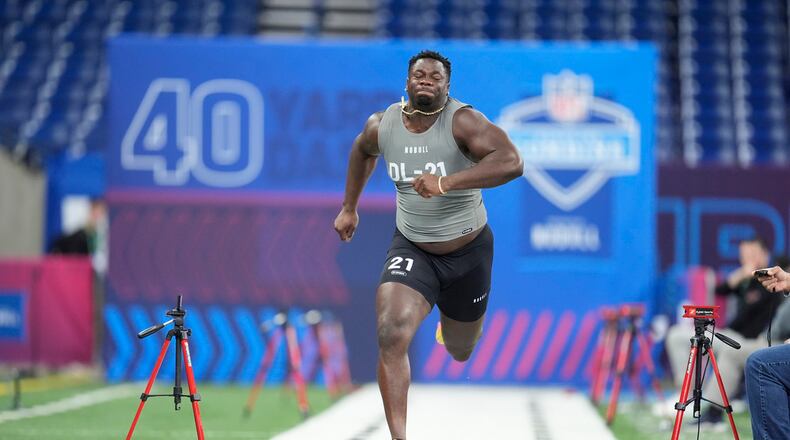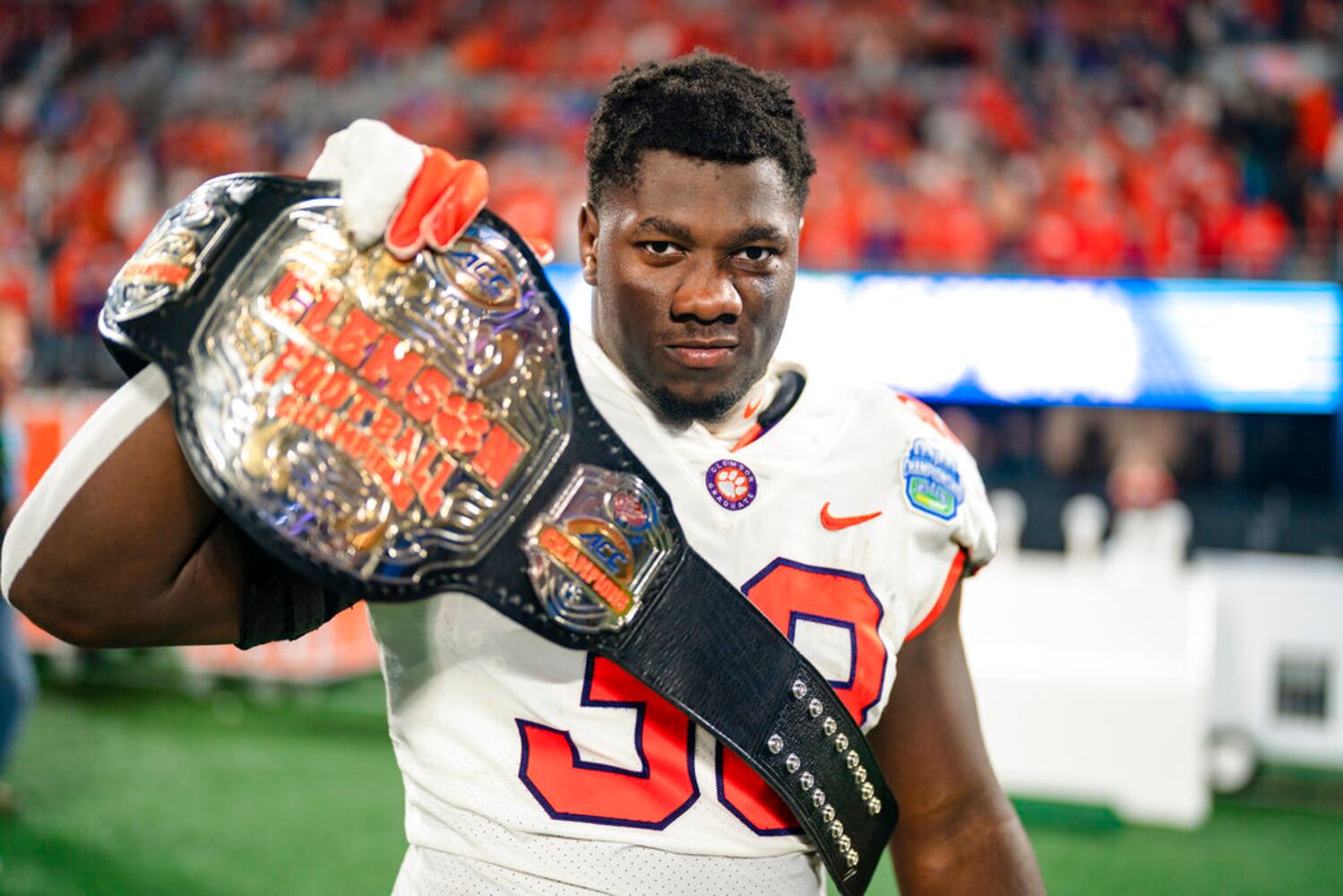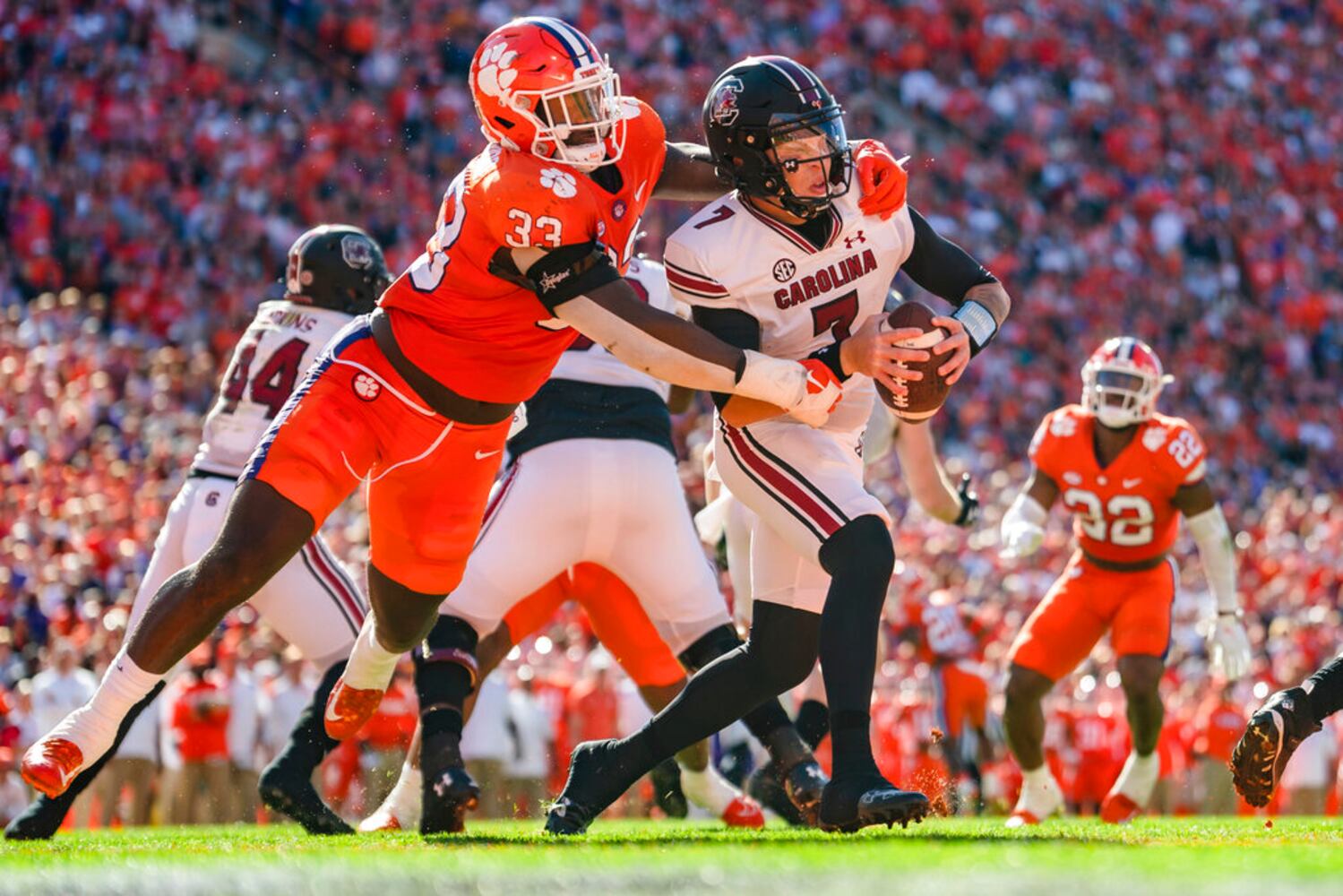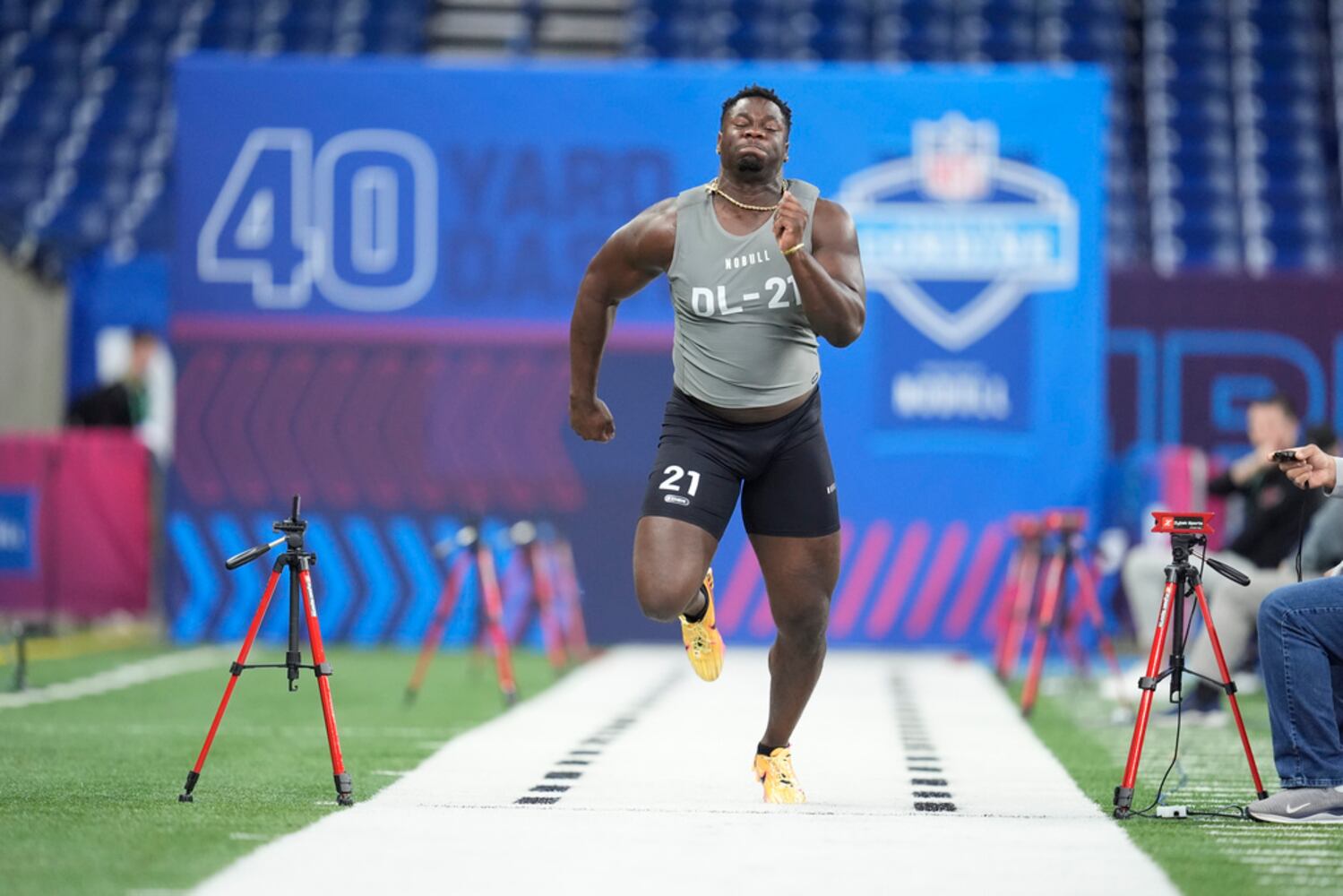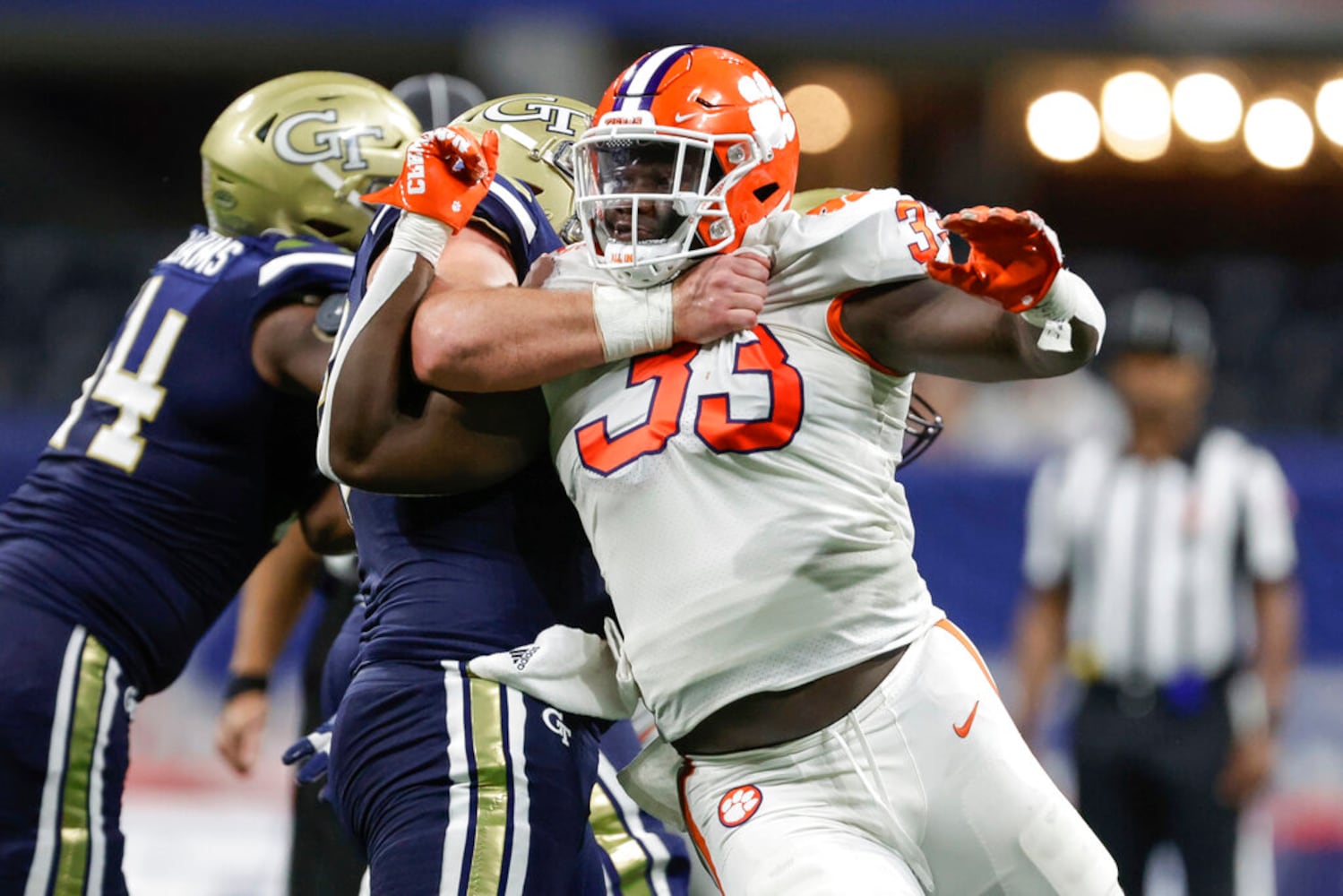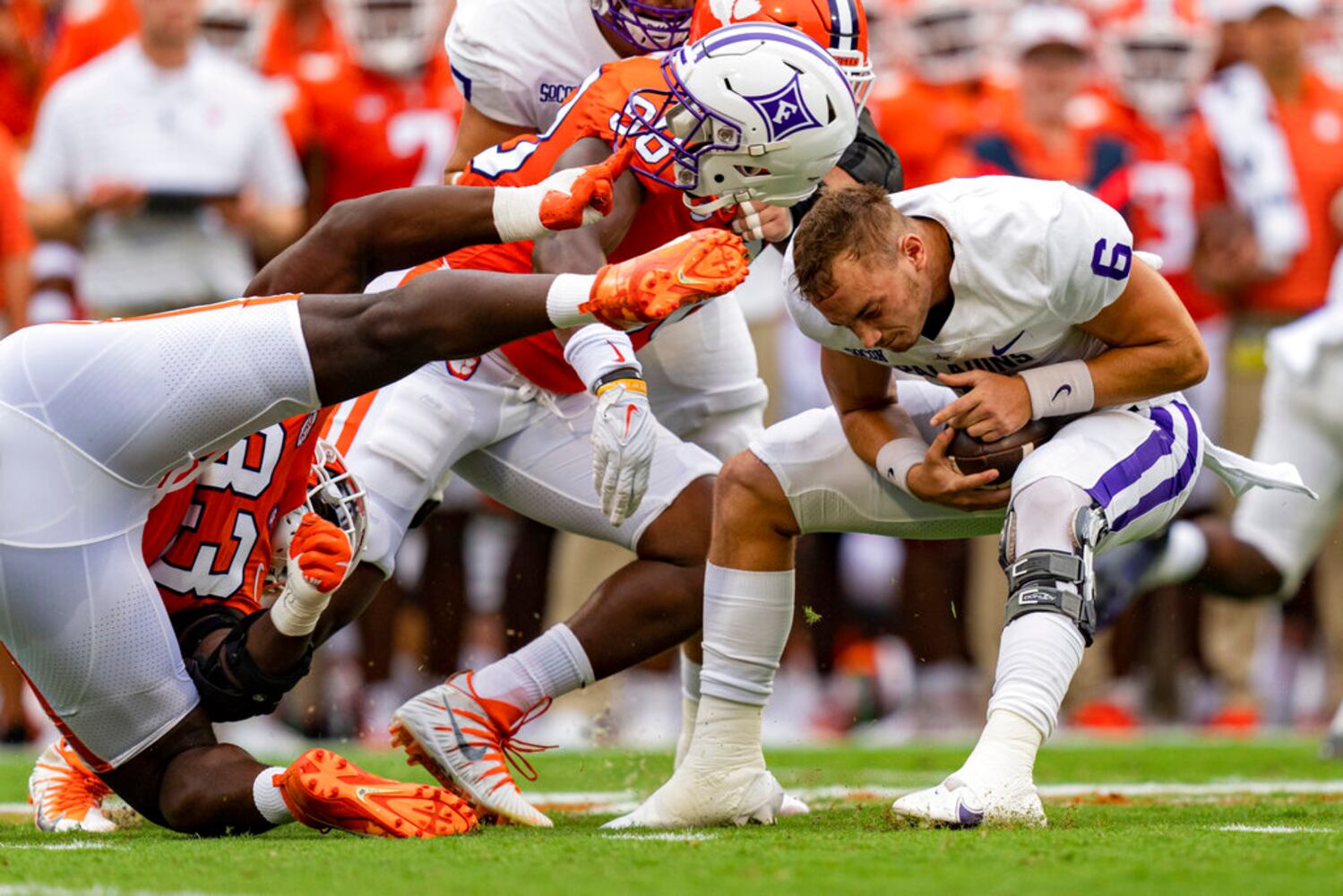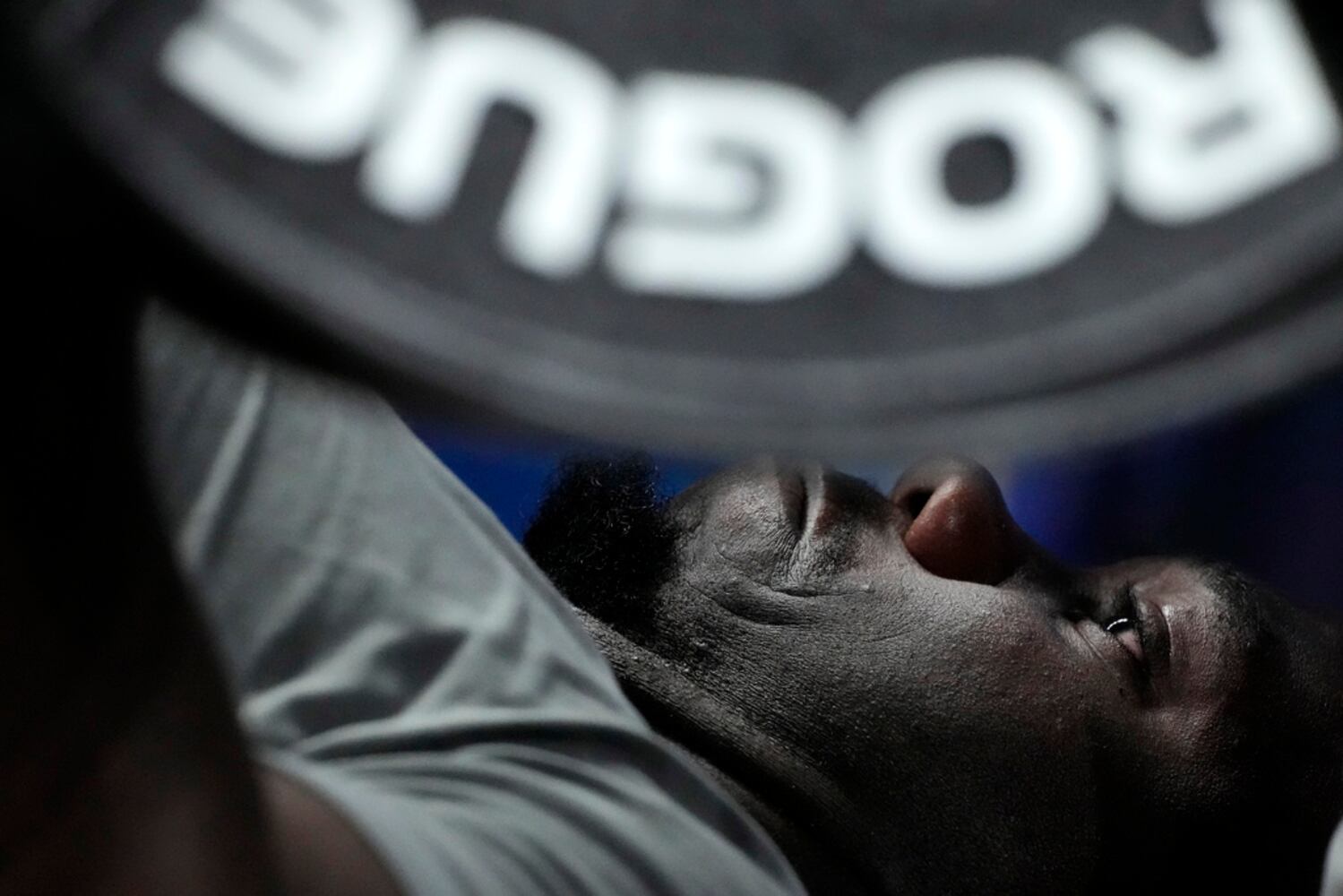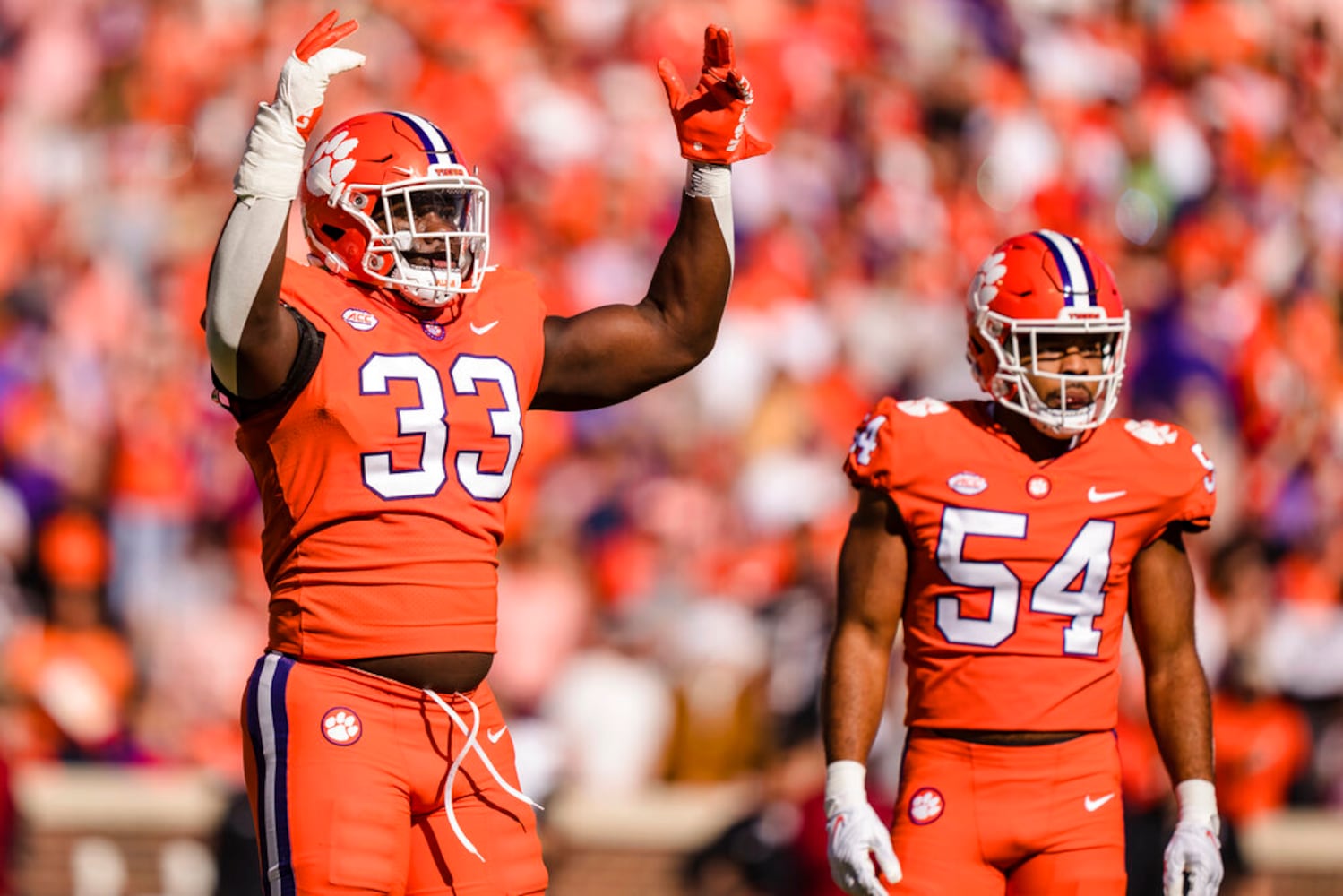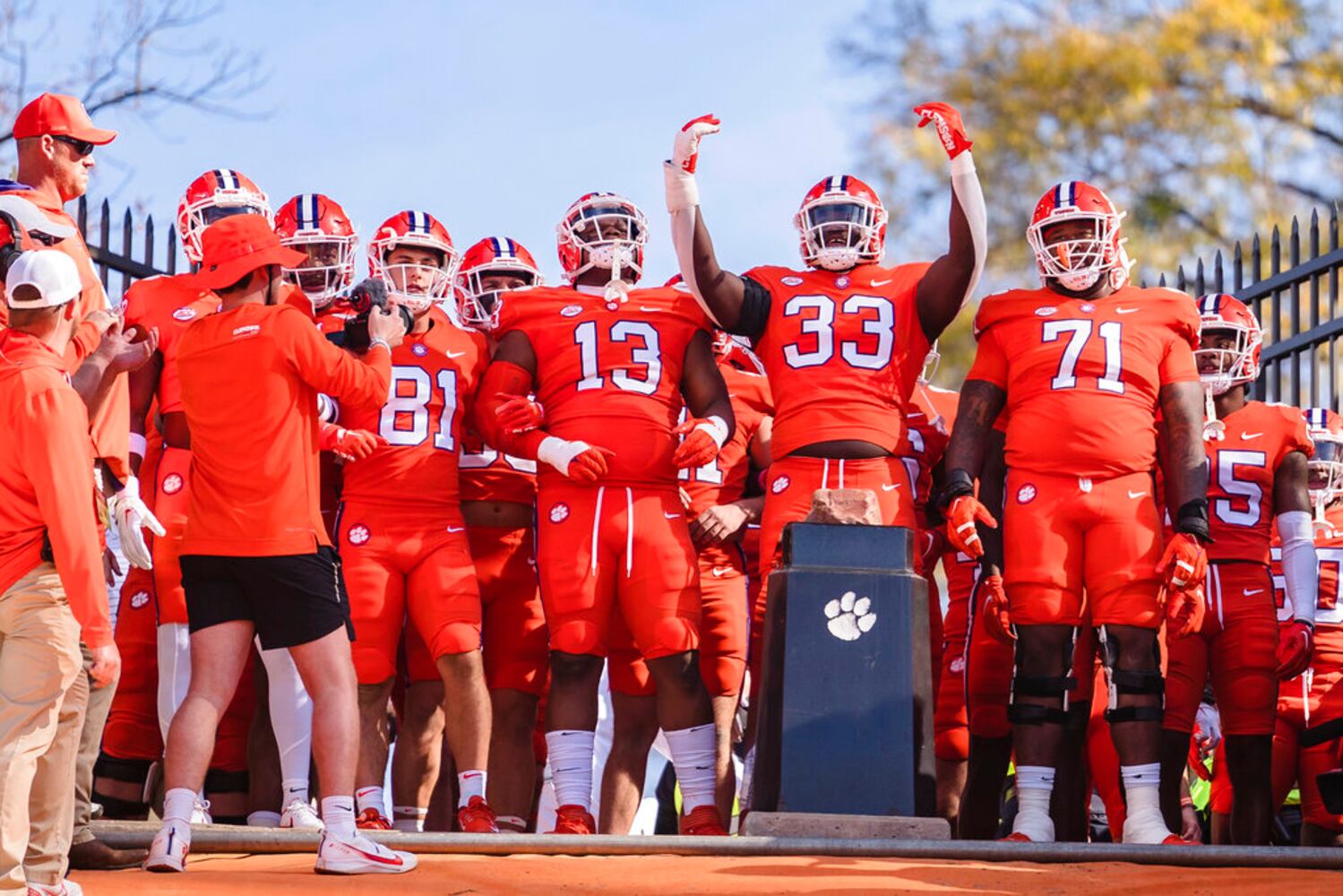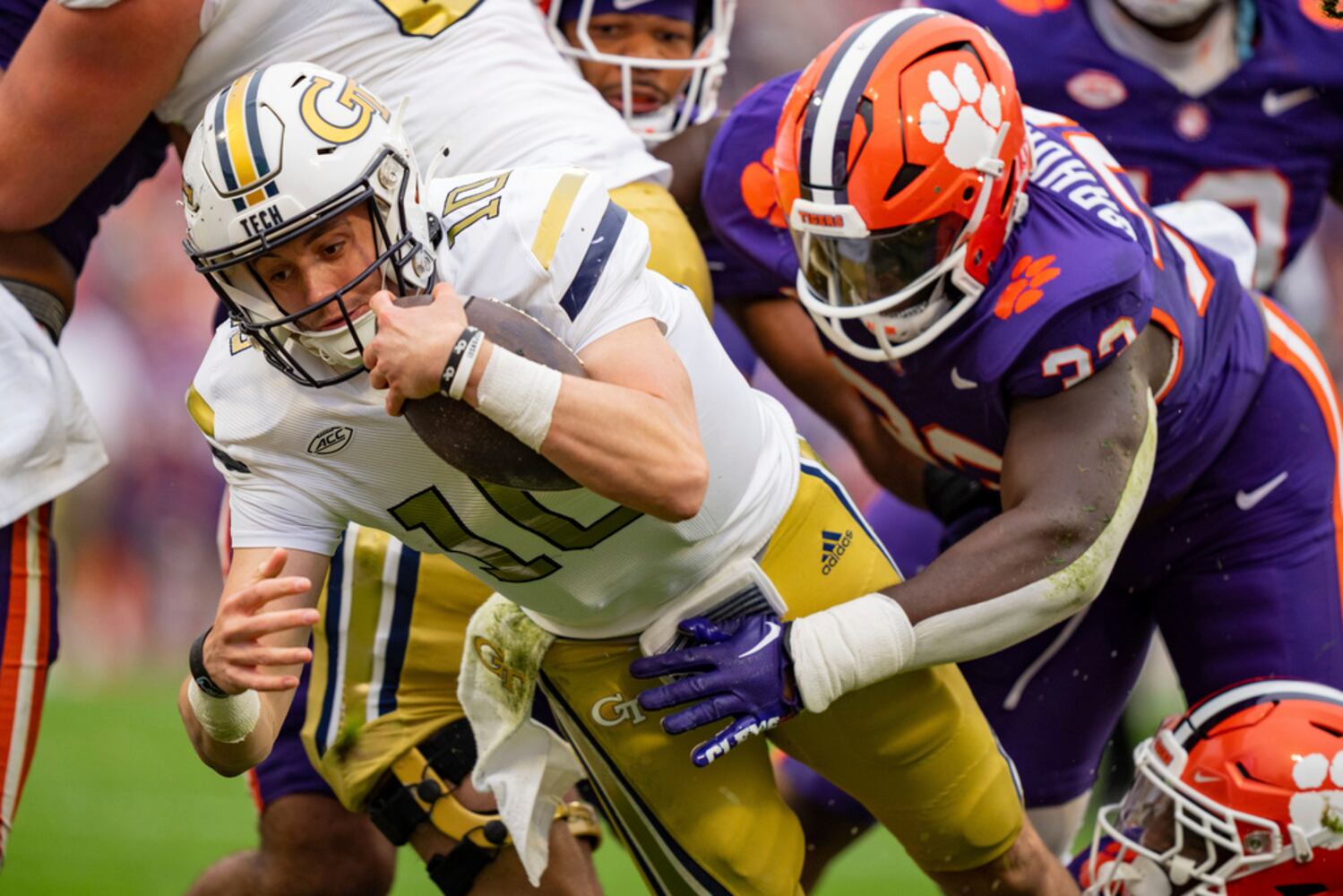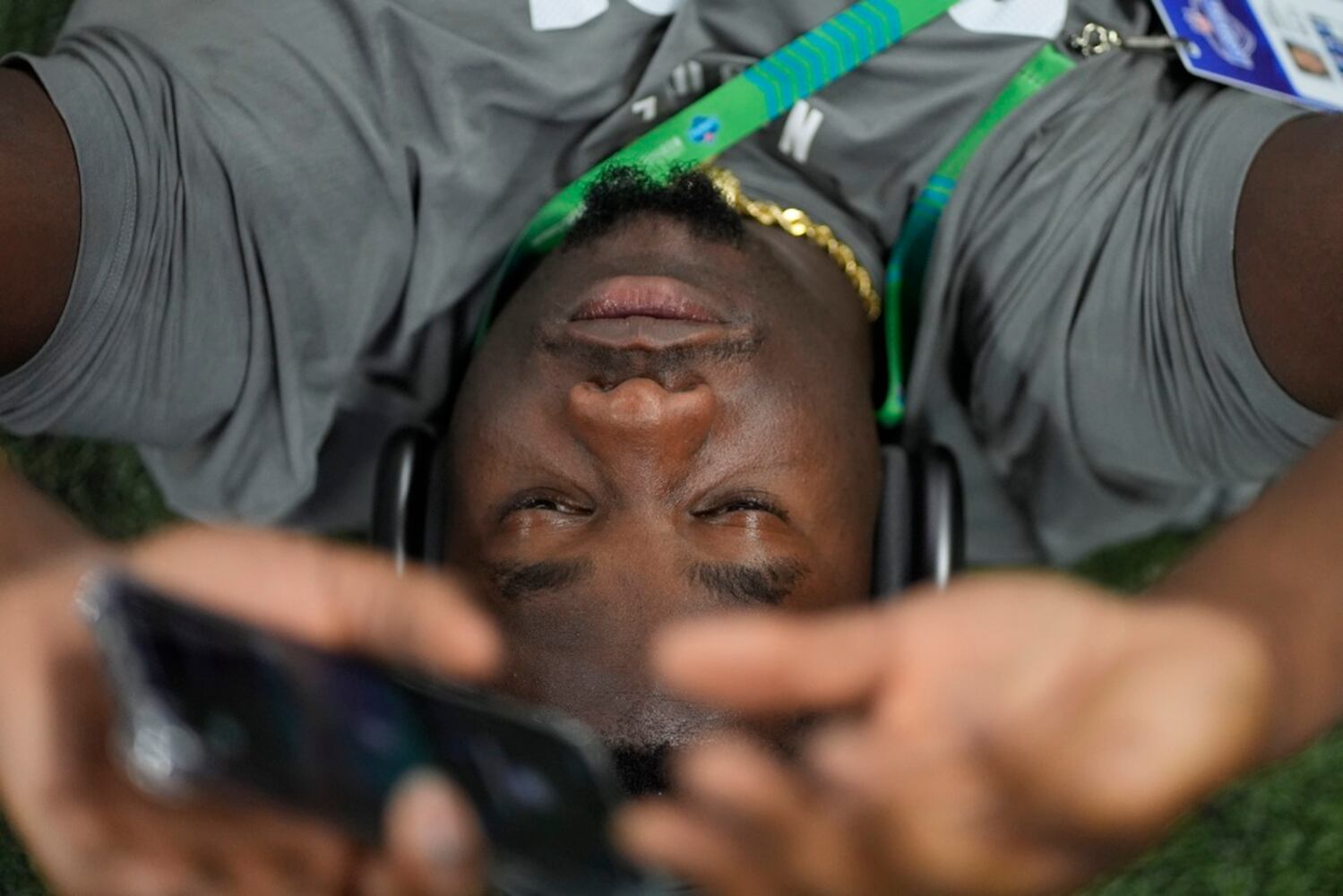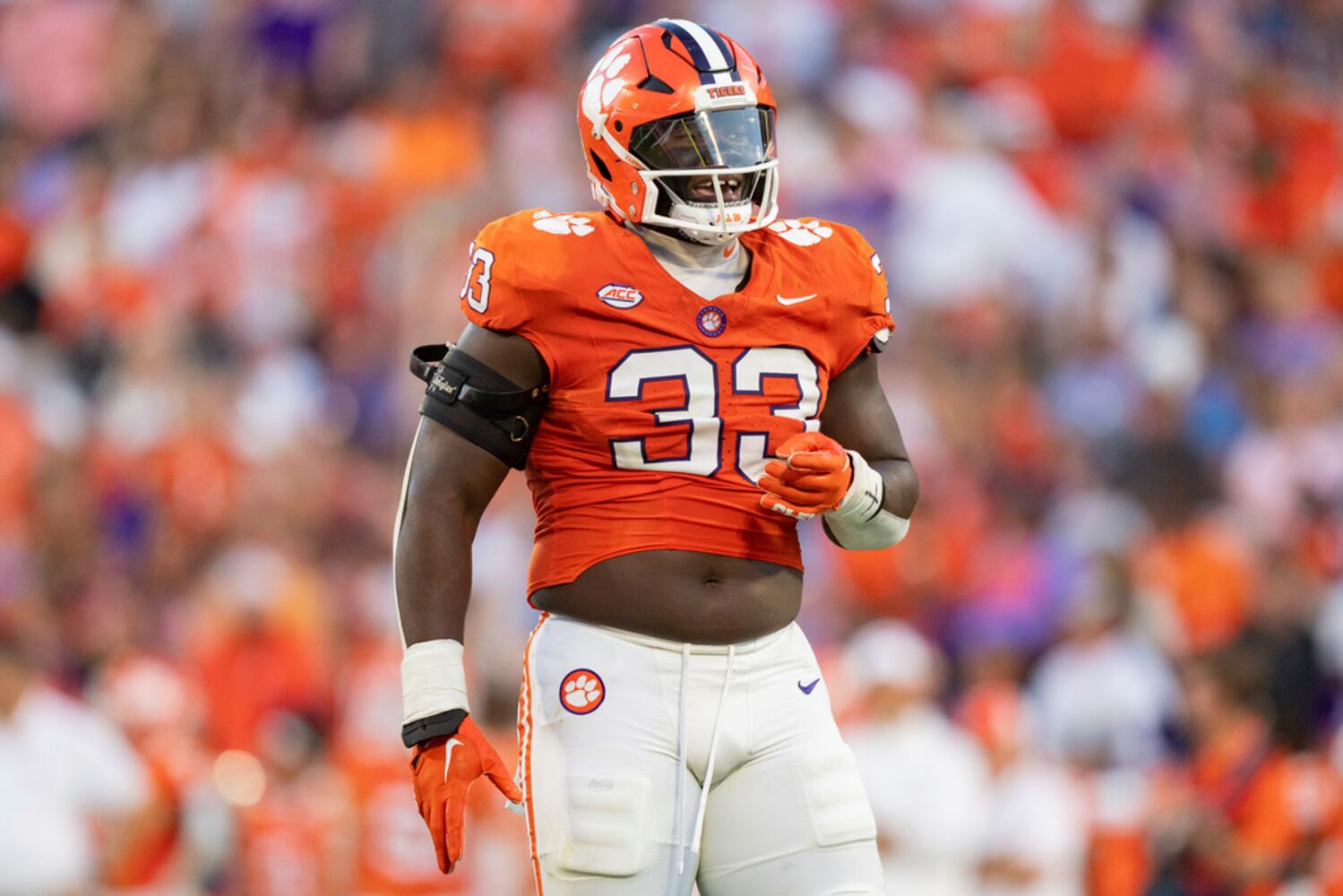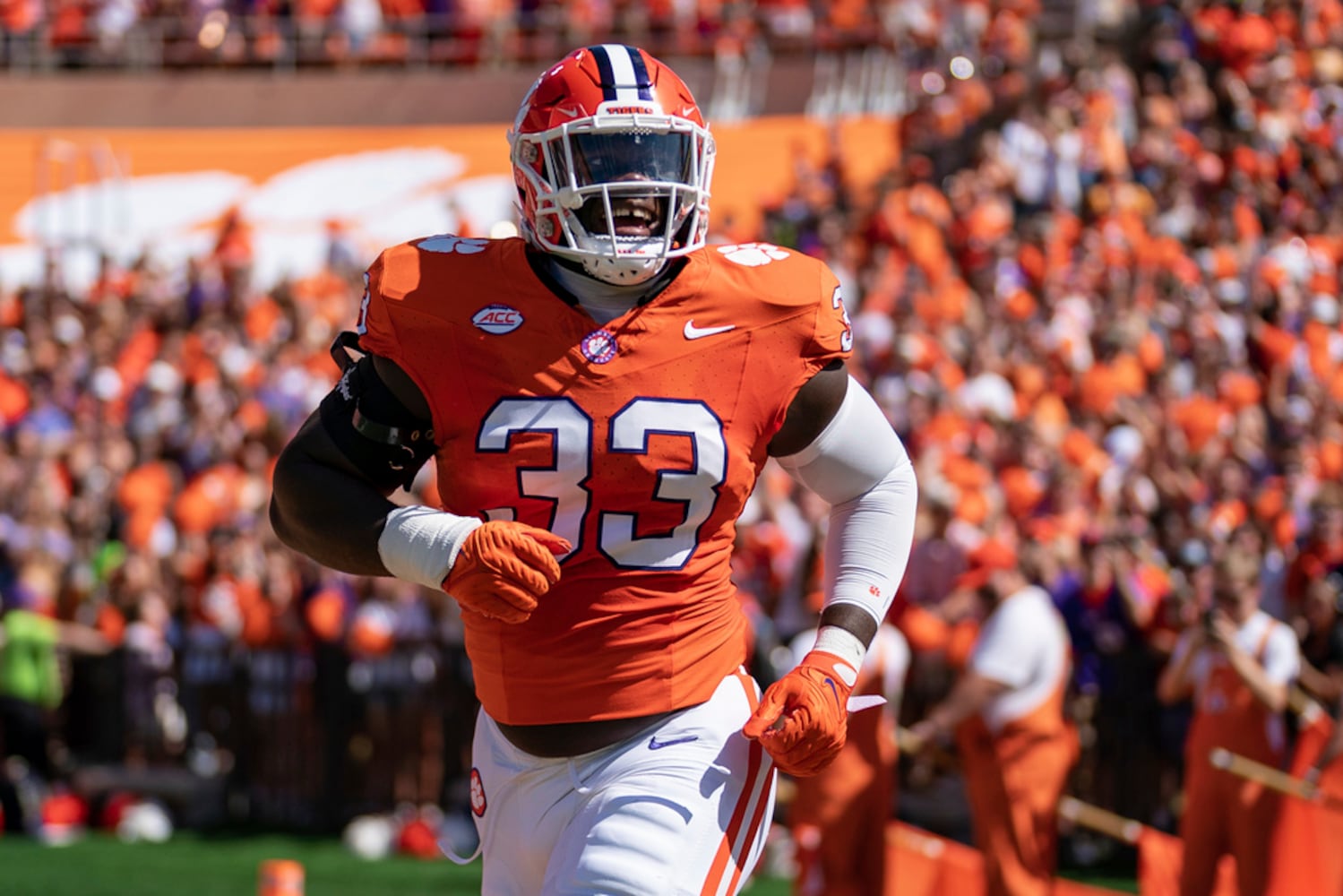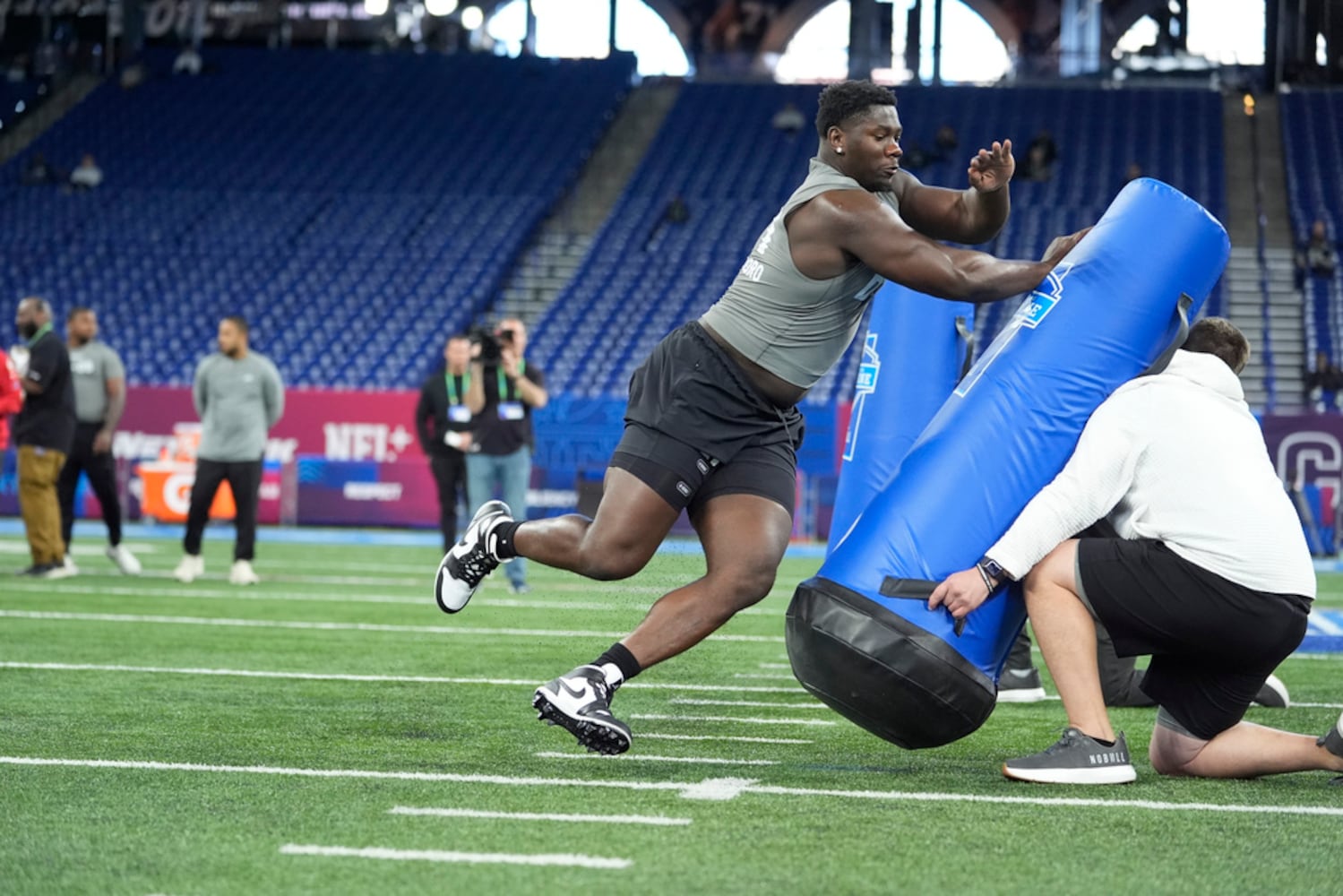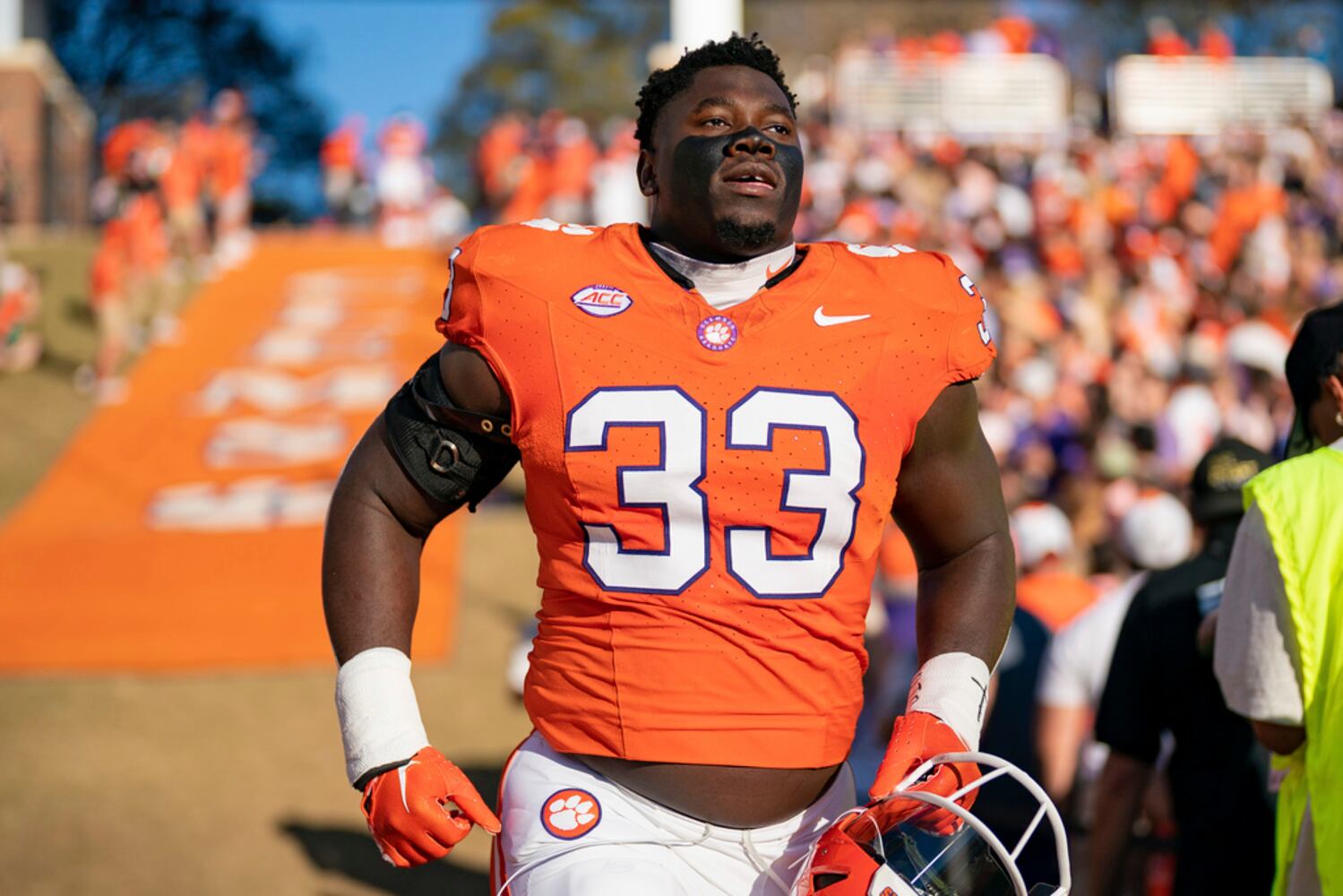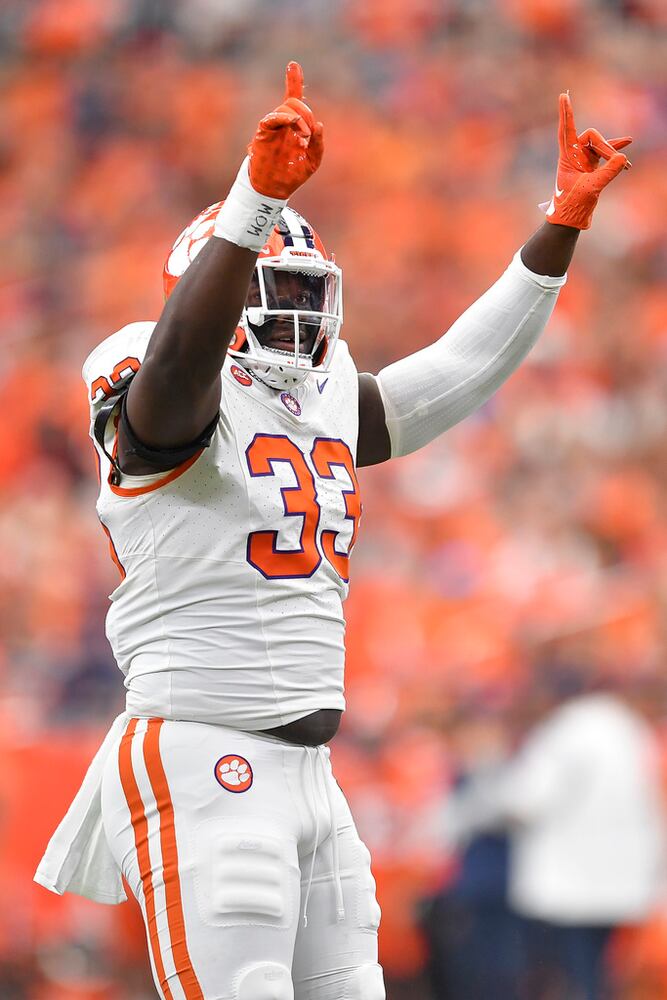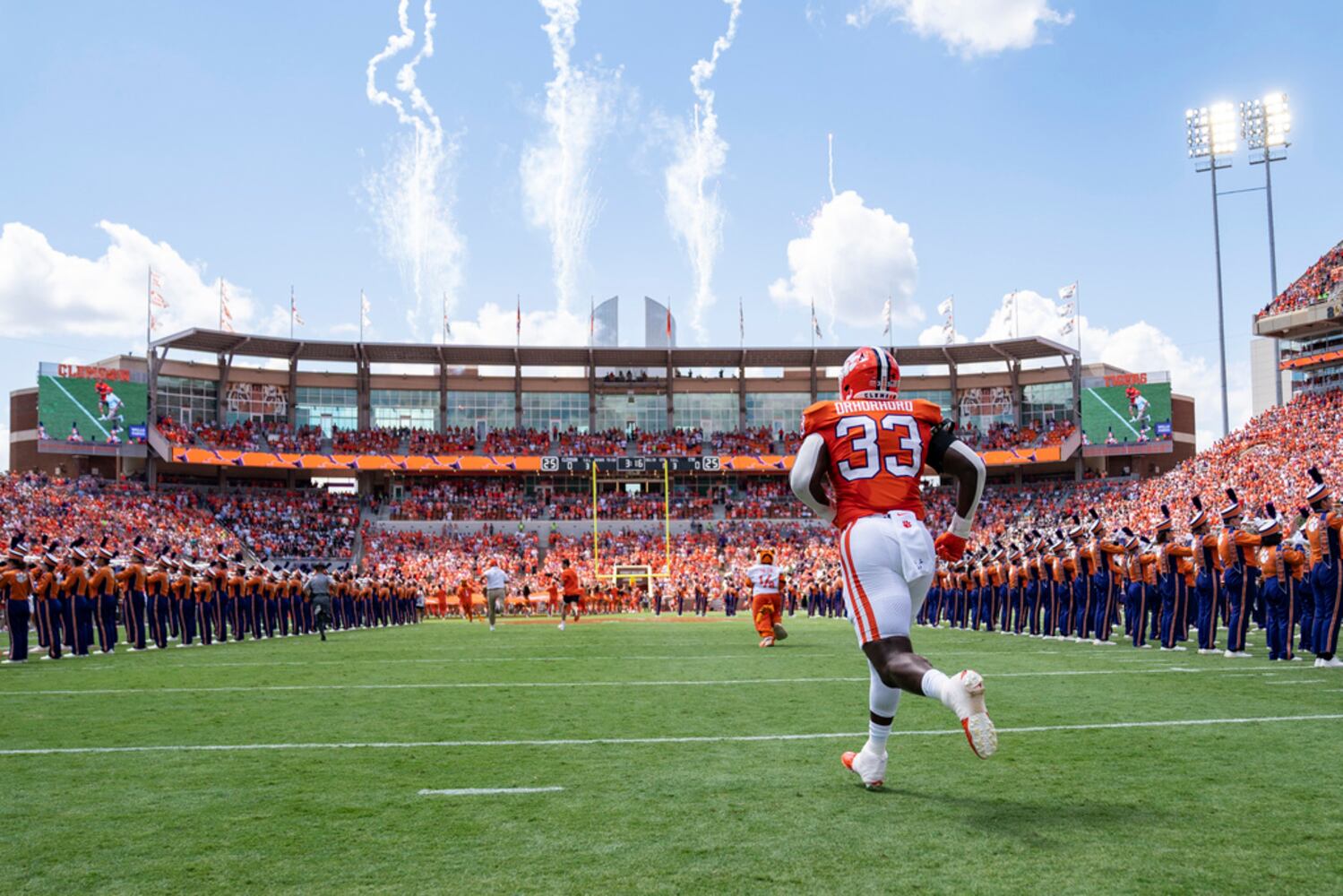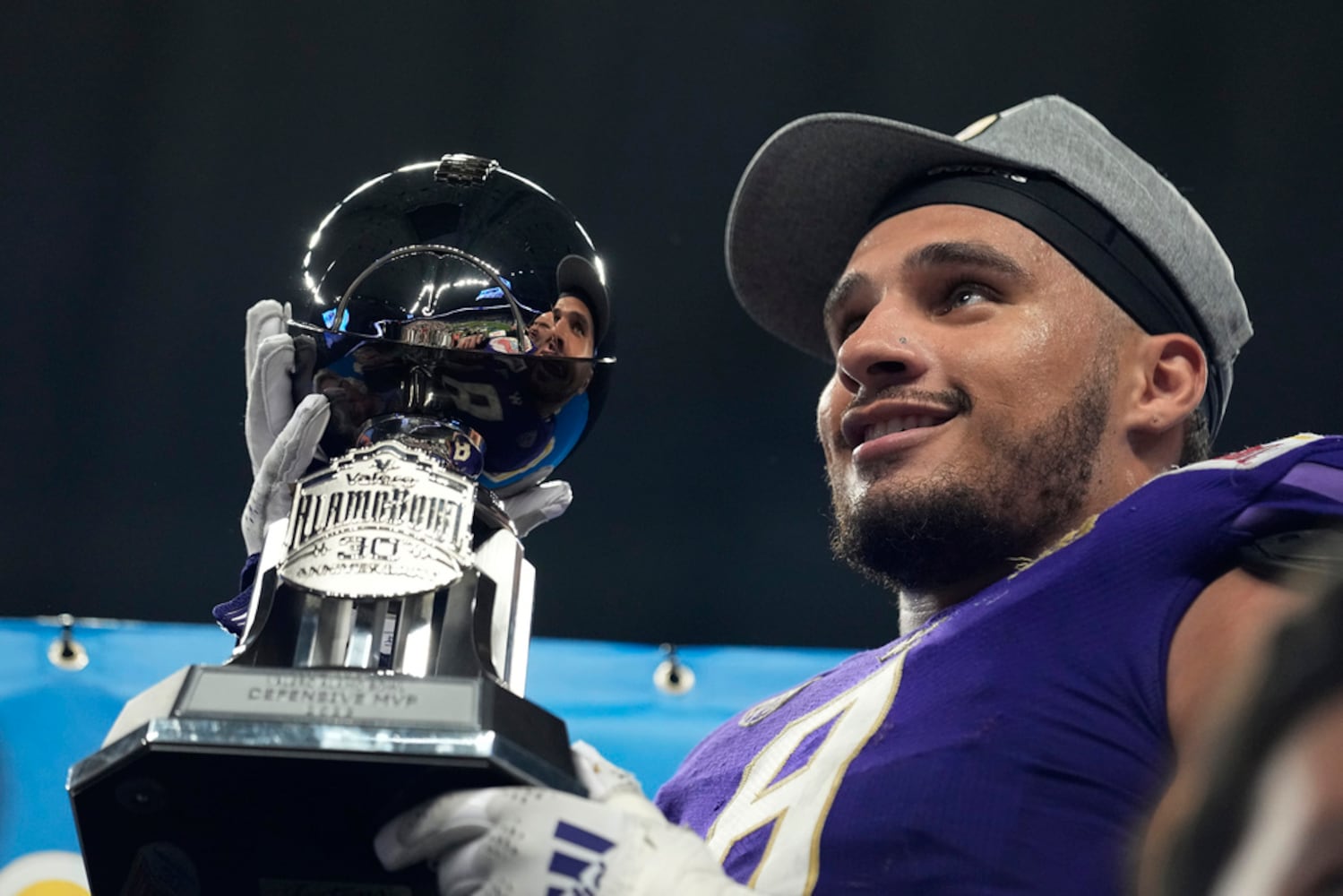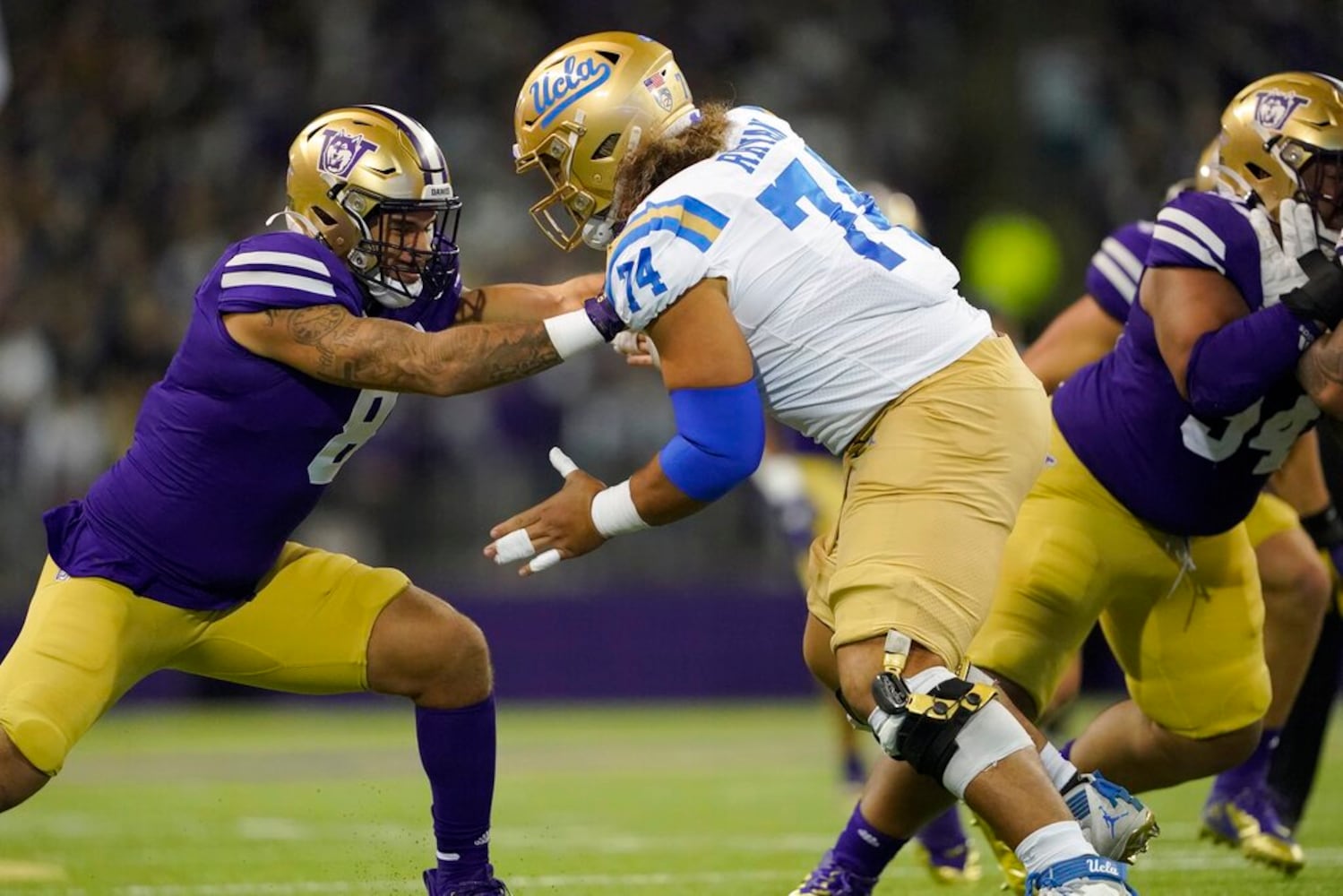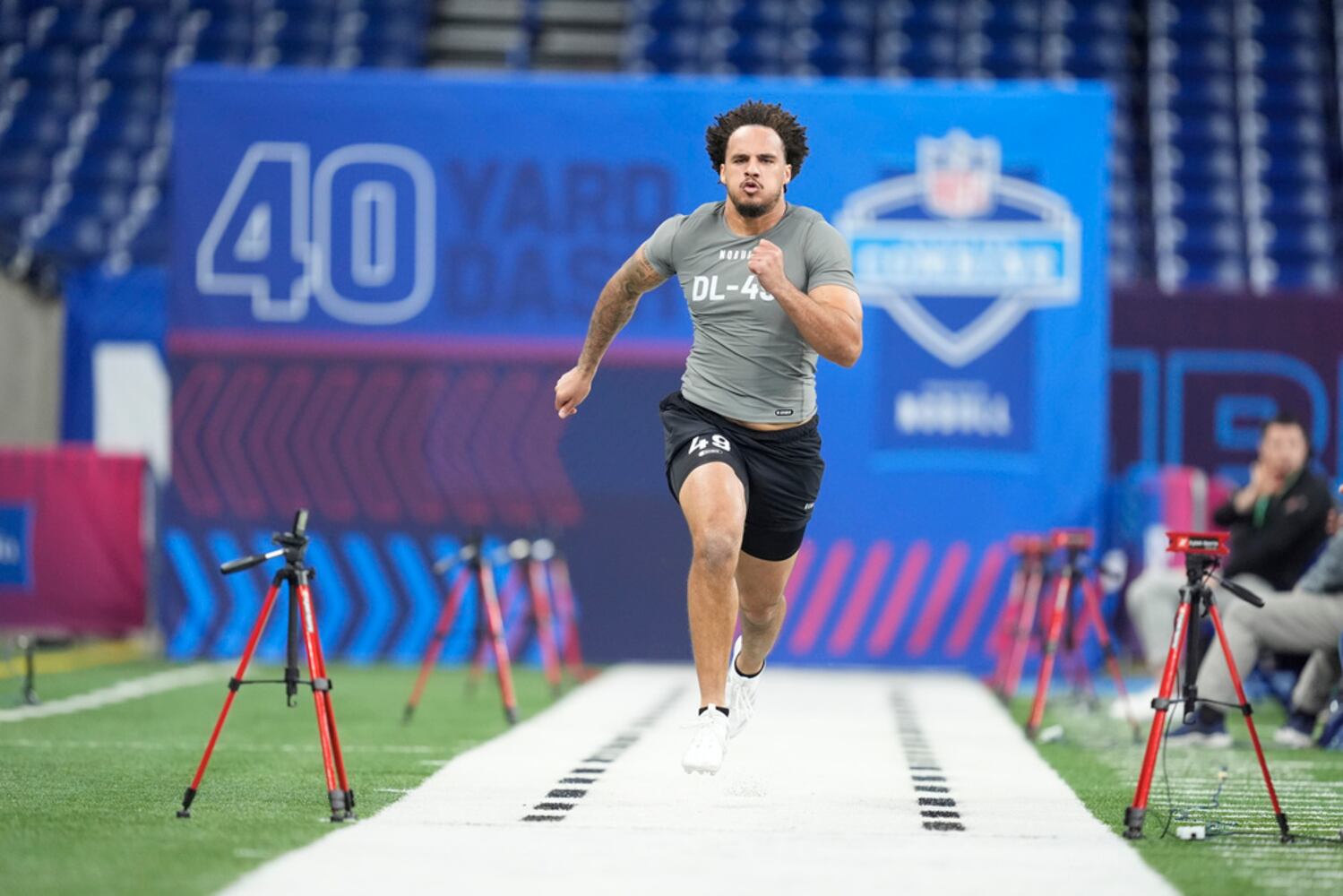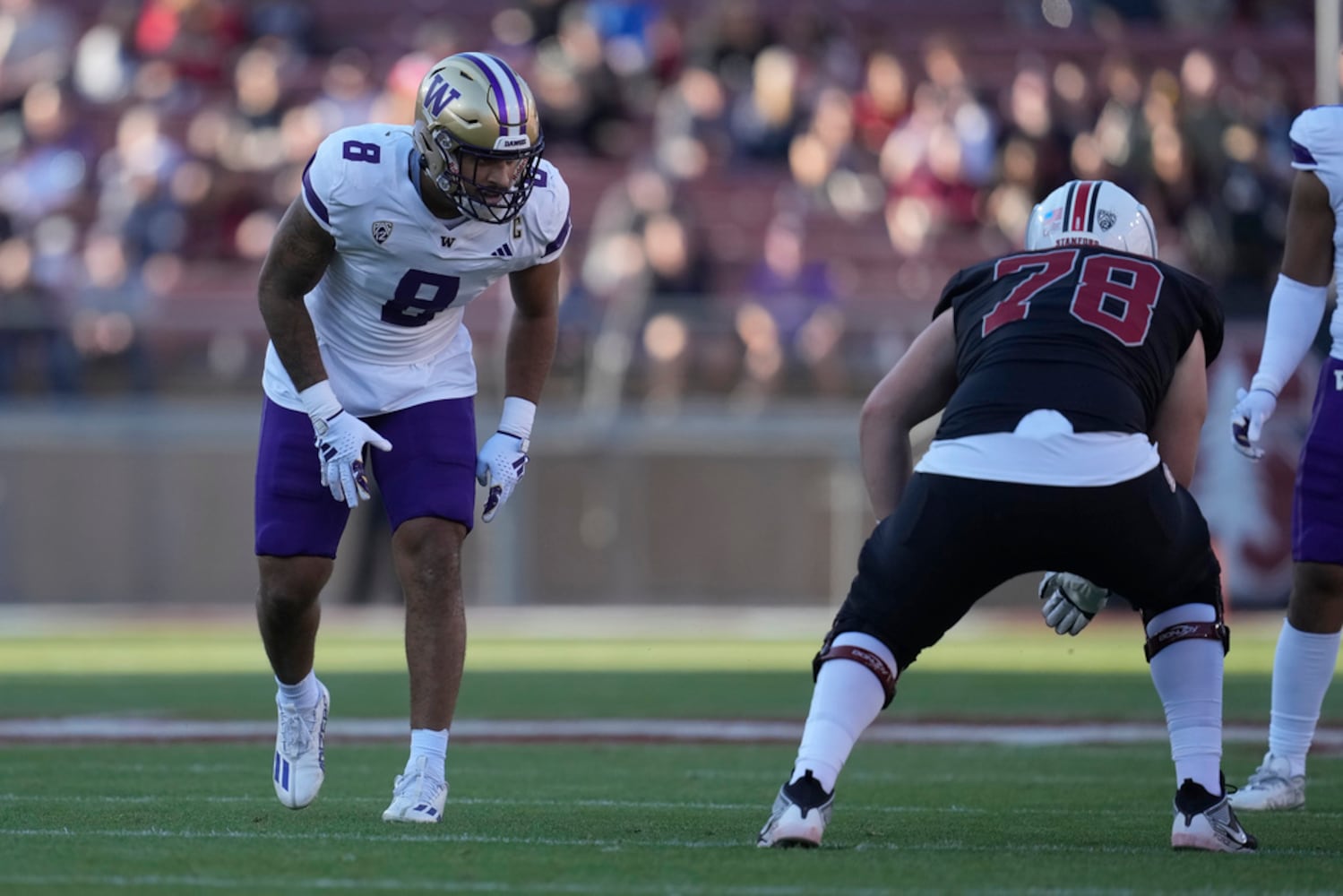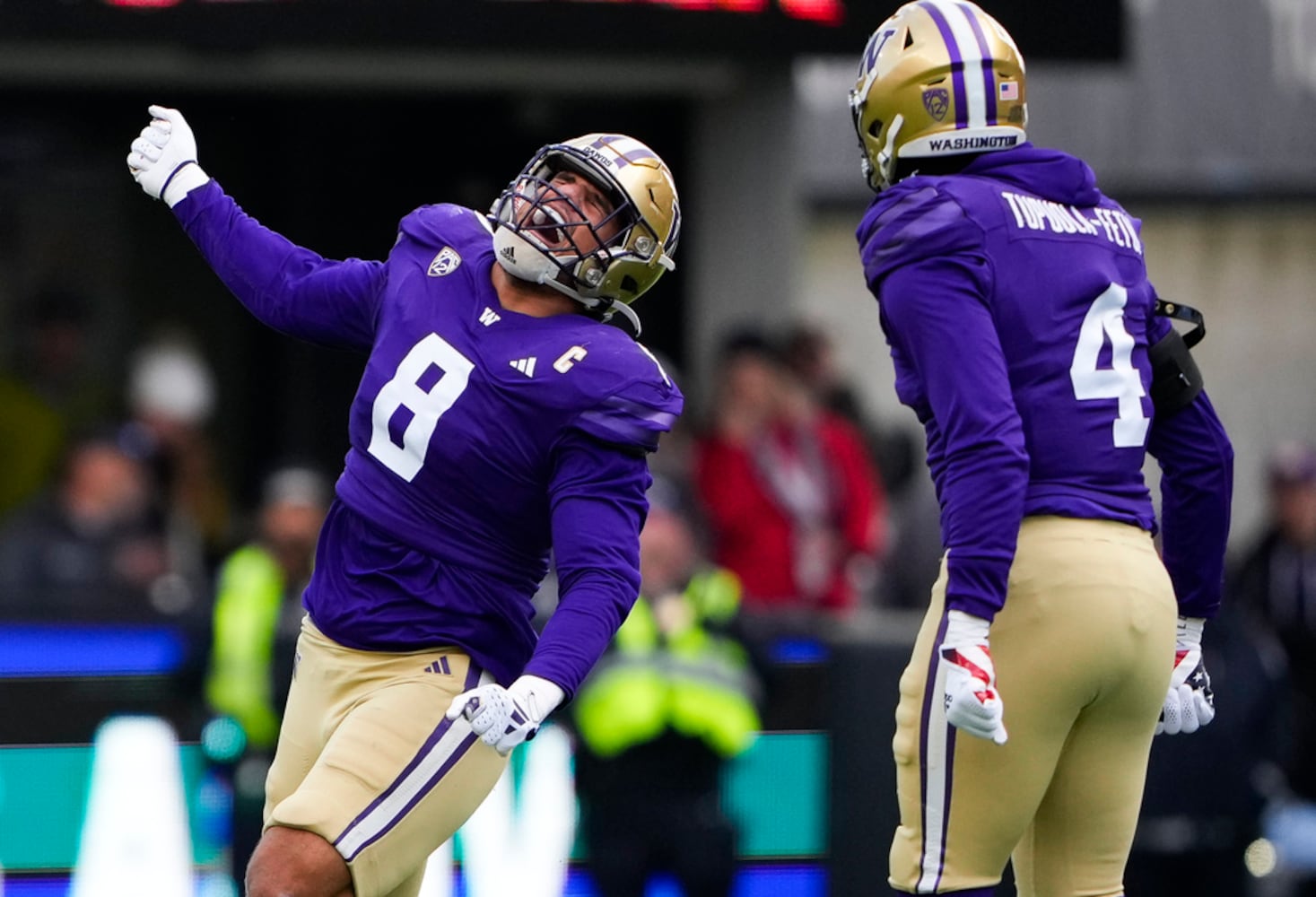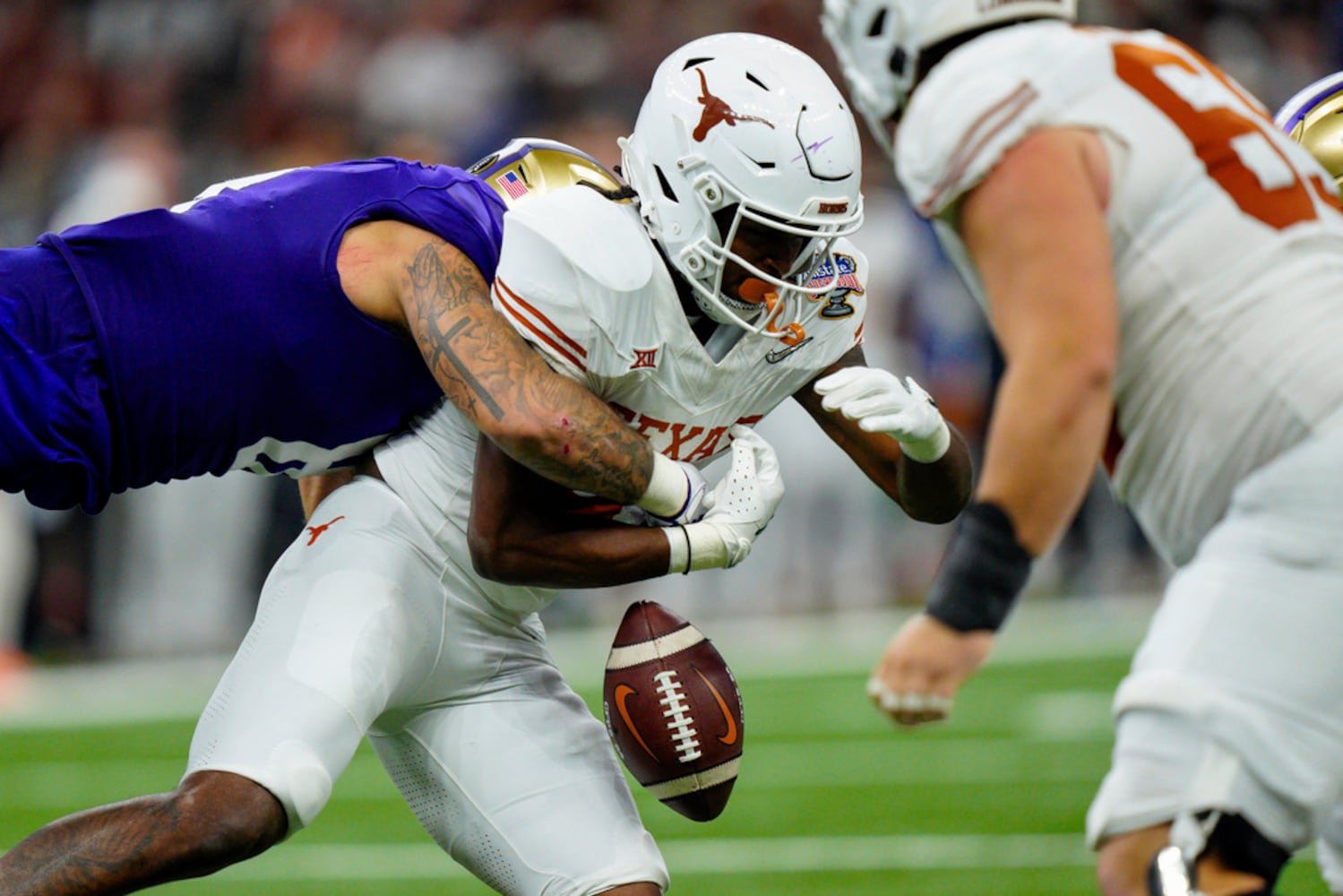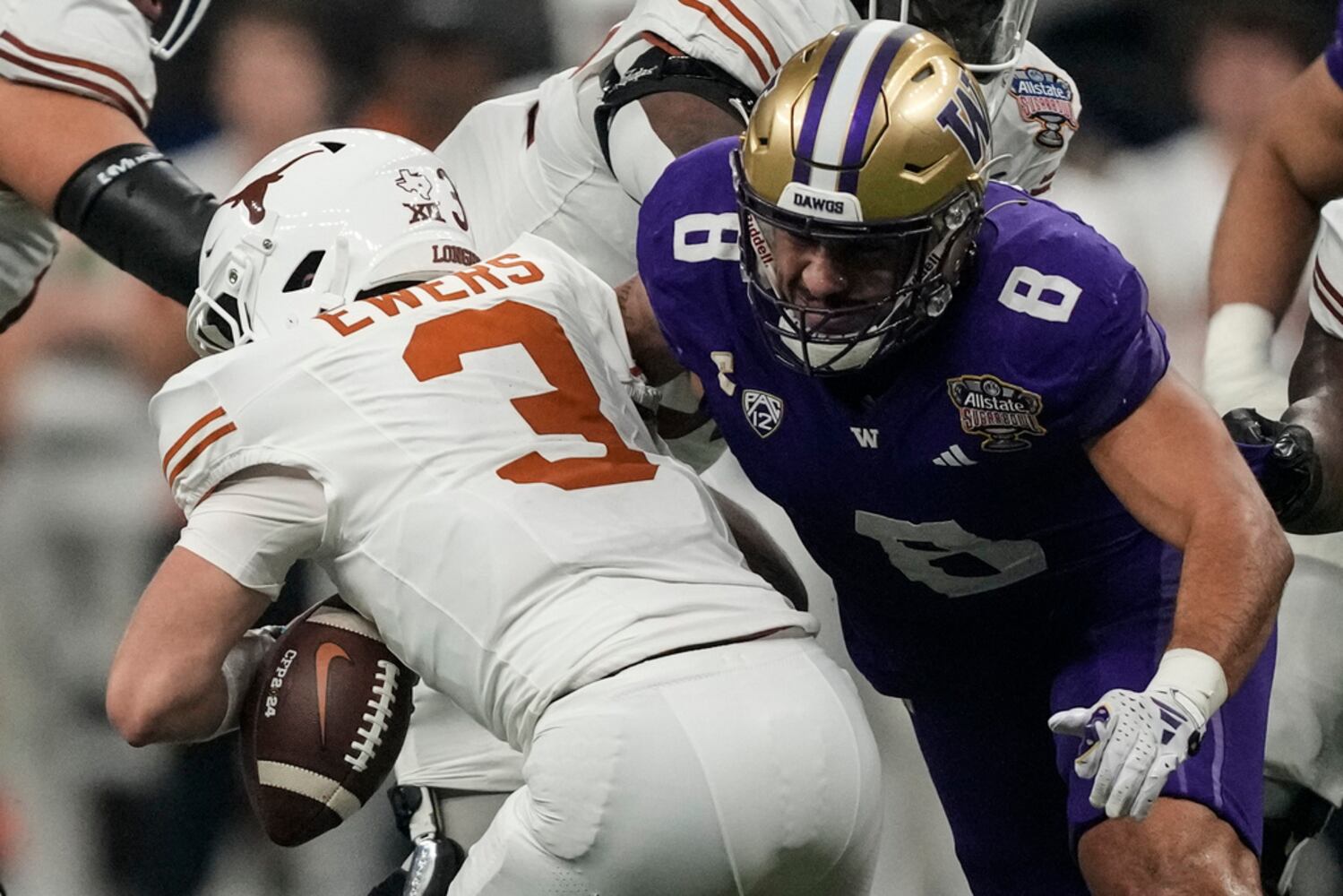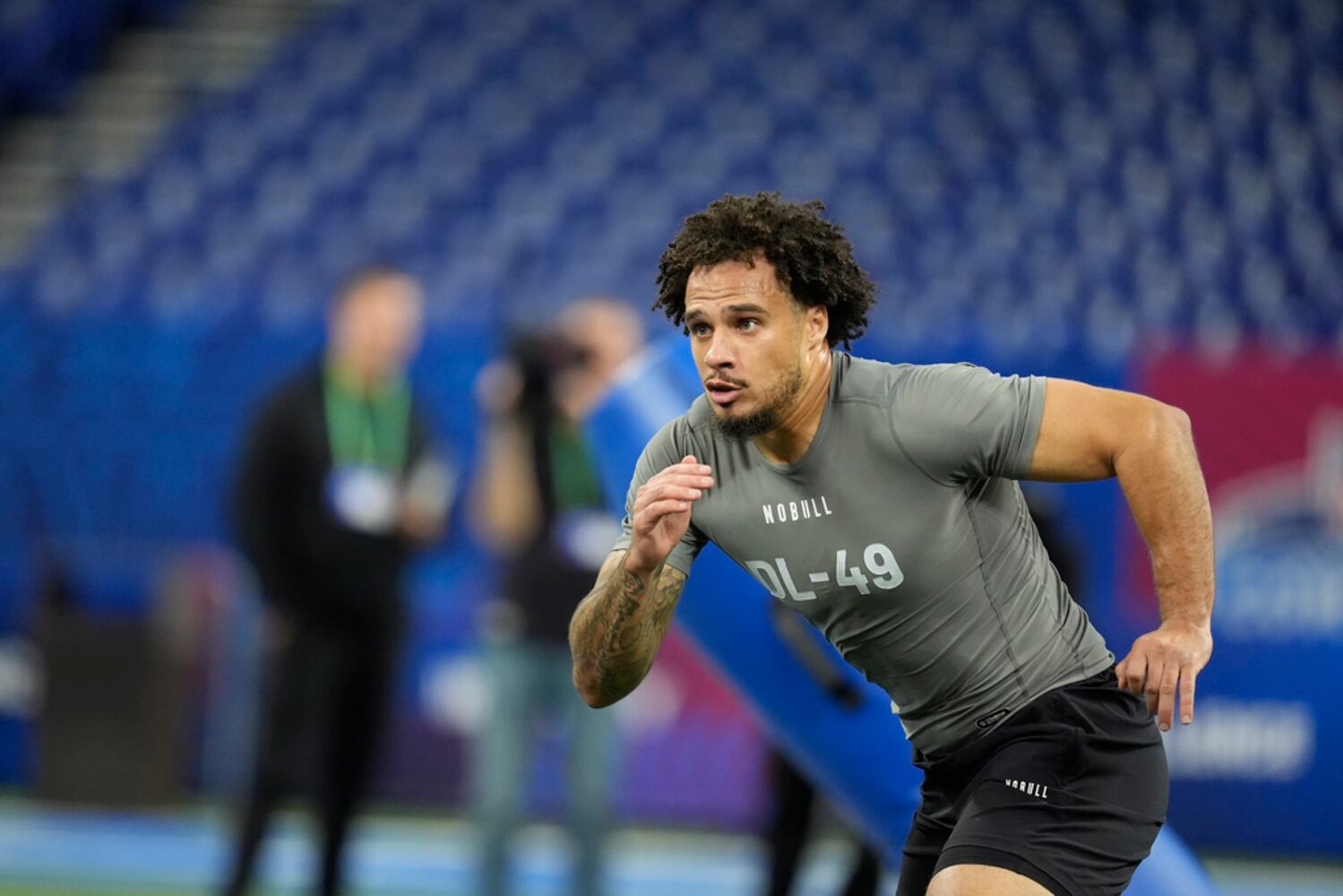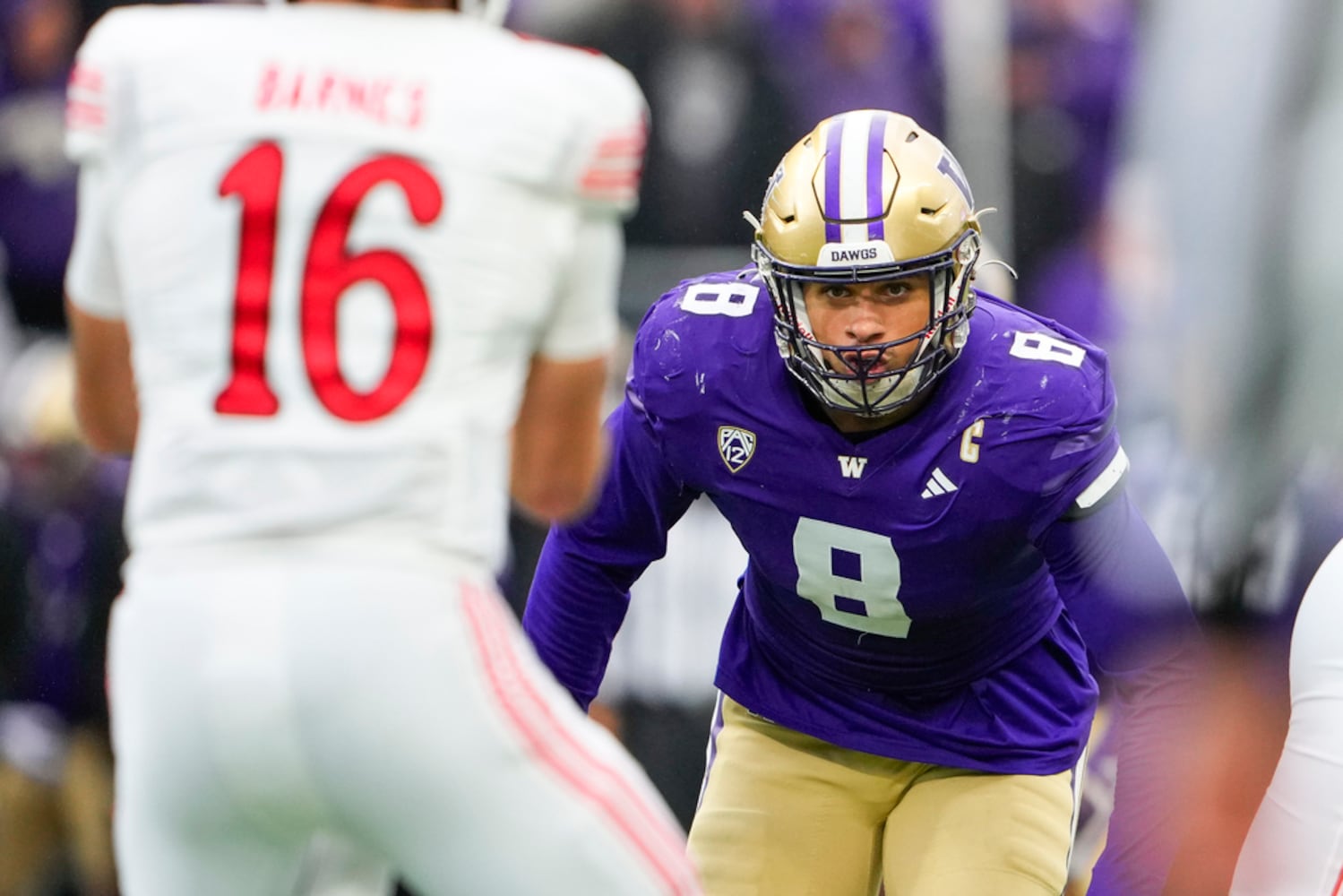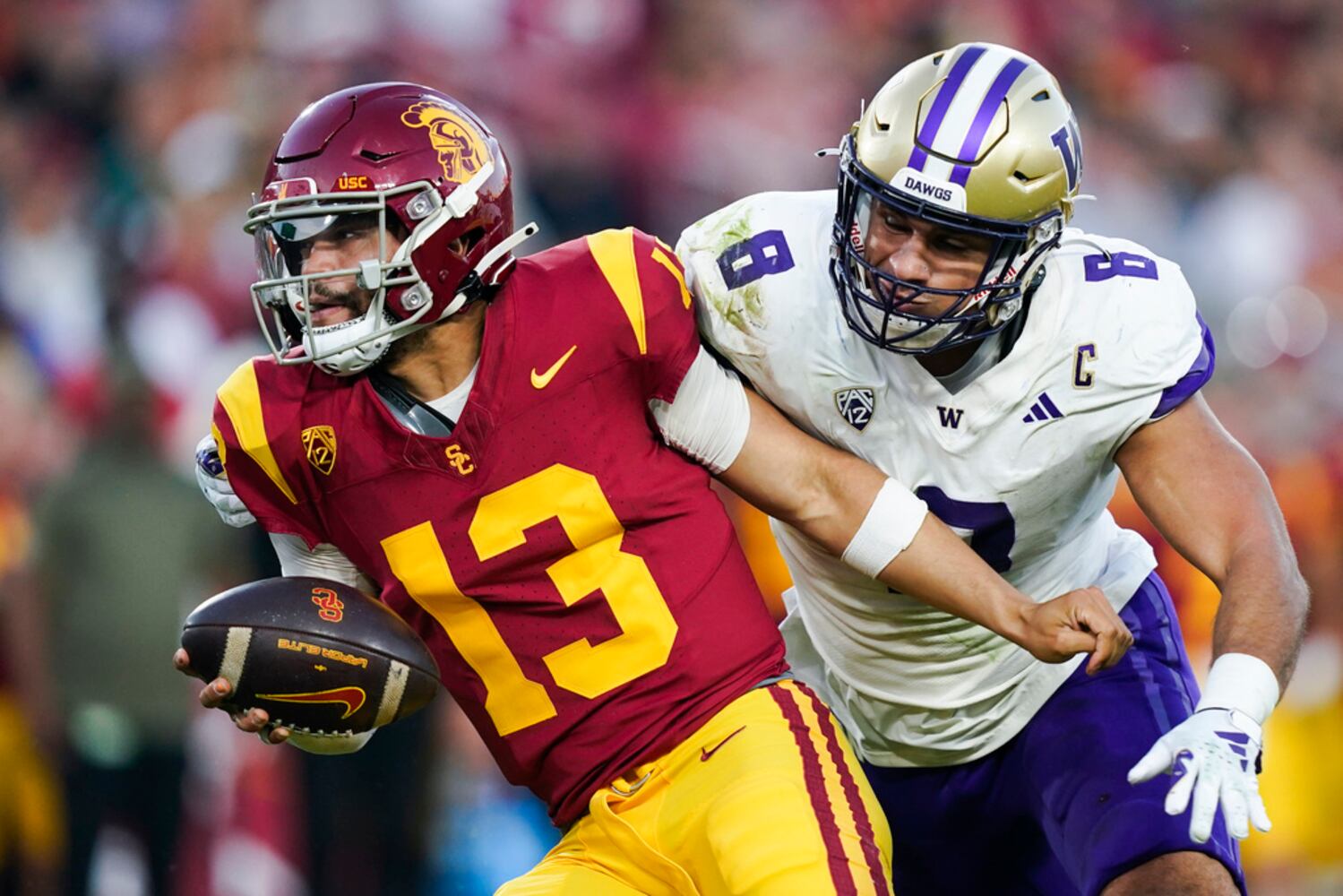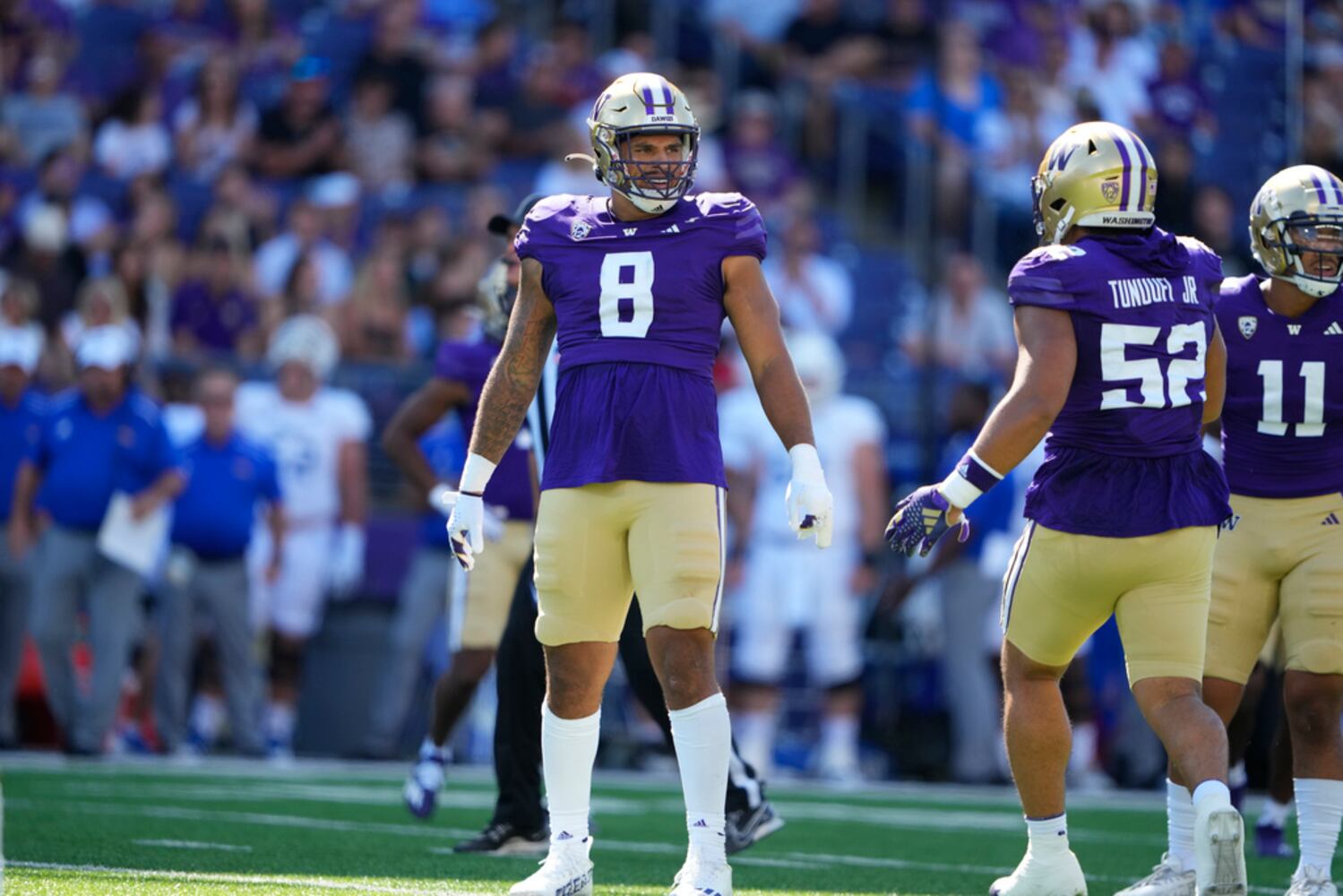FLOWERY BRANCH – With the team’s second pick in the NFL draft, Falcons general manager Terry Fontenot traded up (again) and went with defense (again).
The question now is if Clemson defensive tackle Ruke Orhorhoro can quickly be a difference maker, or will he be like Fontenot’s first four second-round picks, players who have yet to be impact players for the Falcons?
As you might imagine, Fontenot sang the praises of Orhorhoro (pronounced oh-roh-roh-roh), calling him versatile and “a perfect fit” for defensive coordinator Jimmy Lake’s 3-4 defense. He was a player that Fontenot and coach Raheem Morris deemed worth giving up draft capital in order to move up eight spots and take Orhorhoro at No. 35.
“You can ask yourself whether they’re going to be there or not,” Fontenot said. “Obviously, you don’t have a crystal ball. You can’t see into the future, but you want to be aggressive and you weigh out what you’d be giving up to go up and we believed it was worth it. We believed it was worth it because we wanted that player and we have a clear vision for what he’s going to be for us.”
It was the third consecutive draft for Fontenot that he traded picks in order to move up in the second round following outside linebacker Arnold Ebiketie (2022) and guard Matthew Bergeron last year.
And of his five second-round picks, Orhorhoro became the fourth defensive player, following safety Richie Grant (2021) and Ebiketie and linebacker Troy Andersen in 2022, after the Falcons used their first-round picks on offensive skill players.
But the Falcons undoubtedly would love for Orhorhoro to become an impact player sooner than his second-round predecessors. Grant has started 32 games but has three career interceptions and was replaced in the lineup at the end of last season by seventh-round pick DeMarcco Hellams. Ebiketie showed signs last year of emerging in his second season, though he was only on the field for 34% of the team’s defensive snaps, according to Pro Football Reference.
Bergeron started all 17 games last season as a rookie as he moved from tackle (his college position) to guard but had trouble with pass protection. Andersen played only two games last season before getting sidelined with a shoulder/pectoral injury.
Friday night, Fontenot said that Grant has to “improve some things in coverage and some other areas of his game” (not what you want to hear about a safety) but played better near the line of scrimmage. He said of Ebiketie that he “has places to grow, but we believe that he’s going to take another step this year and continue to grow.” Andersen has size, athleticism and raw talent and “he’s going to be an impactful player for us,” Fontenot said. Of Bergeron, Fontenot said that “I truly believe that if he continues to move forward, you’re going to have the best guard combination in the league with him and Chris (Lindstrom).”
All well and good, but compare that with three of the Kansas City Chiefs’ second-rounders in the same time span. Center Creed Humphrey (2021) has made two Pro Bowls and has started all 51 regular-season games in his career. Linebacker Nick Bolton (2021) has started 37 games in three seasons, led the Chiefs in tackles in his first two seasons and likely would have done so again last year but missed half the season with injuries. Last year’s second-rounder, wide receiver Rashee Rice, caught 79 passes for 938 yards and seven touchdowns in the regular season and caught 26 more passes in the Chiefs’ Super Bowl run.
Further, Humphrey (No. 63) and Bolton (No. 58) were drafted after Grant (No. 40) in 2021 and Rice (No. 55) was also taken well after Bergeron (No. 38) last year.
In other words, the Falcons and Fontenot are waiting for the light to come on for their second-rounders (not to say it won’t happen), while the Chiefs’ second-round picks have been instrumental in their back-to-back Super Bowl championships.
It’s a high bar for Fontenot and the Falcons, but one they’ll have to measure up to if they ever want to be a legitimate Super Bowl contender.
That aspiration is why I was O.K. with the selection of quarterback Michael Penix Jr. with the No. 8 overall pick. If the Falcons want to consistently be in the postseason and ultimately win their first Super Bowl, they’ll need a franchise quarterback. If quarterback Kirk Cousins is as effective as they believe he can be, they’ll draft too low to have a chance at a quarterback of Penix’s caliber. It was an awkward way to make it happen, but I understand the Falcons’ rationale that the opportunity couldn’t be passed up.
But that’s only part of it. Nailing second-round picks, players with nearly the same ability as first-rounders, not to mention third-round picks, is also critical. How beneficial has it been to Kansas City to have a Pro Bowl center and the team’s leading tackler on their first contracts, leaving the Chiefs room with salary-cap space to add (or retain) even more talent?
How Orhorhoro will pan out is anybody’s guess at this point, and the same goes for the Falcons’ third-rounder, edge rusher Bralen Trice from Washington. Fontenot described Trice, who was a fellow captain with Penix with the Huskies, as tough and instinctive with a high motor and capable of playing the run and going after the quarterback.
This draft in particular, where Penix may not contribute anything significant this season or next, the onus is on Orhorhoro and Trice to contribute like first-rounders.
In a videoconference with media after his selection, Trice said that he first became aware that the Falcons were drafting him Friday night when his agent texted him, telling him to answer his phone. Somehow, the Falcons had a wrong number for Trice and were calling him with no answer.
The Falcons would hope that this proves to be merely a story to laugh about and not a symbol of ineffective draft efforts.
If the Penix pick is going to be the franchise-turning moment they want it to be, hitting on picks like Orhorhoro and Brice is going to be really important.
About the Author
